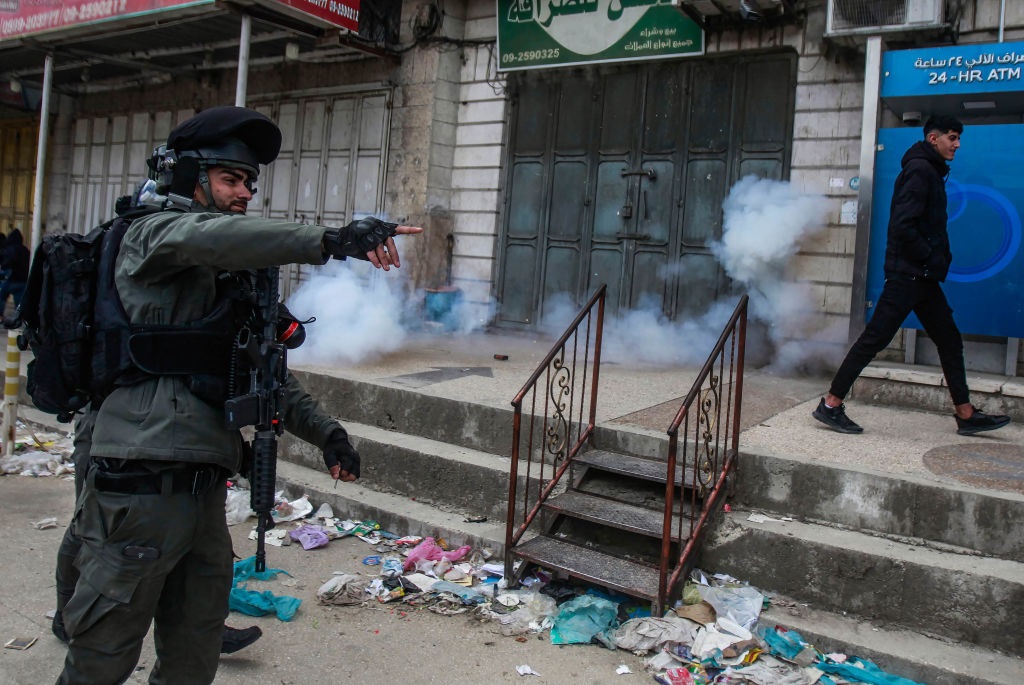
Seventy-five years of the Palestinian narrative, with the Nakba at its heart, is getting recognised and heard despite the consistent attempts to suppress and erase it, writes Saleh Hijazi.
"Until the lions have their own historians, the history of the hunt will always glorify the hunter" – African proverb
On 15 May 2023, the United Nations will for the first time officially commemorate the Nakba, the destruction of the Palestinian homeland and the ethnic cleansing of most of the Indigenous people of Palestine by Zionist militias and, later, the Israeli military.
Nakba, meaning catastrophe in Arabic, is at the heart of the Palestinian experience and identity. For the UN to officially recognise and include as an international day of remembrance is a very welcome step and an indication that the Palestinian story is starting to get heard.
Nakba is ongoing
The Nakba is the systematic and consistent attempt of Zionist settler-colonialism to erase the Palestinians, most significantly carried out in 1948, but is still going until today. The clear and declared objective is a Jewish supremacist state in Palestine with as few Indigenous Palestinians as possible, preferably none. Israeli leaders throughout the past 75 years have made this clear in both expression and in practice. At the time of the Nakba, the first prime minister of Israel, David Ben-Gurion, was publicly calling for the expulsion and uprooting of Palestinians while leading the ethnic cleansing operations across the country.
ANOTHER VIEW | OPINION: Chaim Lax - The Nakba narrative
Last year, following a peaceful march by students holding Palestinian flags to commemorate the Nakba, member of Israeli parliament and former minister, Israel Katz, warned the students to "Remember 48. Remember our independence war and your Nakba, don't stretch the rope too much…If you don't calm down, we'll teach you a lesson that won't be forgotten."
This year, many around the world have witnessed Israel’s latest progrom by fascist Israeli militias against Palestinians in Huwara near Nablus in the occupied Palestinian territory. In a televised interview following the progrom senior Israeli government minister, Bezalel Smotrich, called for Huwarra "to be erased". Later, speaking at a public event in France, Smotrich, said:
Today, there are around 14 million Palestinians. Half are forced to remain in exile, living in refugee camps or in the diaspora, prevented by the Zionist settler-colonial regime from returning to their homes. The other half lives under a brutal system of racial oppression and colonial domination, which treats them as an inferior racial group that must be eliminated from the land. This system which prominent international human rights organisations (including Amnesty International and Human Rights Watch), and an increasing number of Israeli human rights groups (including the Israel Law Professors Forum for Democracy, B’tselem and Yesh Din) have concluded it amounts to apartheid.
READ | LETTER FROM PALESTINE: We hold onto hope and pray we find peace in our lifetimes
Indeed, today government officials and former Presidents, MPs, jurists and diplomats from Asia, Africa and Latin America, UN experts and agencies, faith leaders, parliamentarians, and a wide host of civil society organisations all address the urgent challenge of ending Israeli apartheid.
Apartheid is what Palestinians also call the ongoing Nakba, it is the daily reality that Amnesty International captured in its landmark and exhaustive report published in February 2022, titled "Israel’s Apartheid Against Palestinians: A Cruel System of Domination and Crime Against Humanity". The report illustrates how Israel treats Palestinians as an "inferior racial group" and concludes that since 1948 Israel has established a regime to ensure "a Jewish demographic hegemony and maximising its control over land to benefit Jewish Israelis while restricting the rights of Palestinians and preventing Palestinian refugees from returning to their homes."
Segregation and control
Amnesty examined the key components of this regime, include: territorial fragmentation of the Palestinian people; segregation and control including through military rule; dispossession of land and property; and denial of economic and social rights. This system, the organisation says, is apartheid. The organisation has also documented crimes perpetrated to maintain this regime including forcible transfers, administrative detention and torture, unlawful killings, denial of basic rights and freedoms and persecution. Based on this examination, Amnesty concludes that Israel is committing a crime against humanity which is aparthied against the Palestinians.
For Palestinians, recent reports, statements, positions, and commemorations by the international community recognise a reality that they have been living and resisting for decades. Seventy-five years of the Palestinian narrative, with the Nakba at its heart, is getting recognised and heard despite the consistent attempts to suppress and erase it. Similar to other nations in Africa, Asia, and Latin America who were colonised, the Palestinians' culture has been destroyed, and the people's history has been for long written by the colonisers. That is no longer the case, today, Palestinians are telling their own story.
Reflecting on an African proverb about the story of the hunter and the lion Chinua Achebe said:
Indeed, it is time the world recognises the Palestinian agony as victims of Zionist settler-colonialism and apartheid and also their bravery in resisting it. It starts with the Nakba.
- Saleh Hijazi was the former Deputy Regional Director for the Middle East and North Africa for Amnesty International (AI), and was the co- author of the AI report “Israel’s Apartheid Against Palestinians: Cruel System of Domination and Crime Against Humanity.” He is the Africa Campaigner at the The Palestinian Boycott, Divestment and Sanctions National Committee (BNC).
*Want to respond to the columnist? Send your letter or article to opinions@news24.com with your name and town or province. You are welcome to also send a profile picture. We encourage a diversity of voices and views in our readers' submissions and reserve the right not to publish any and all submissions received.
Disclaimer: News24 encourages freedom of speech and the expression of diverse views. The views of columnists published on News24 are therefore their own and do not necessarily represent the views of News24.




 Publications
Publications
 Partners
Partners























